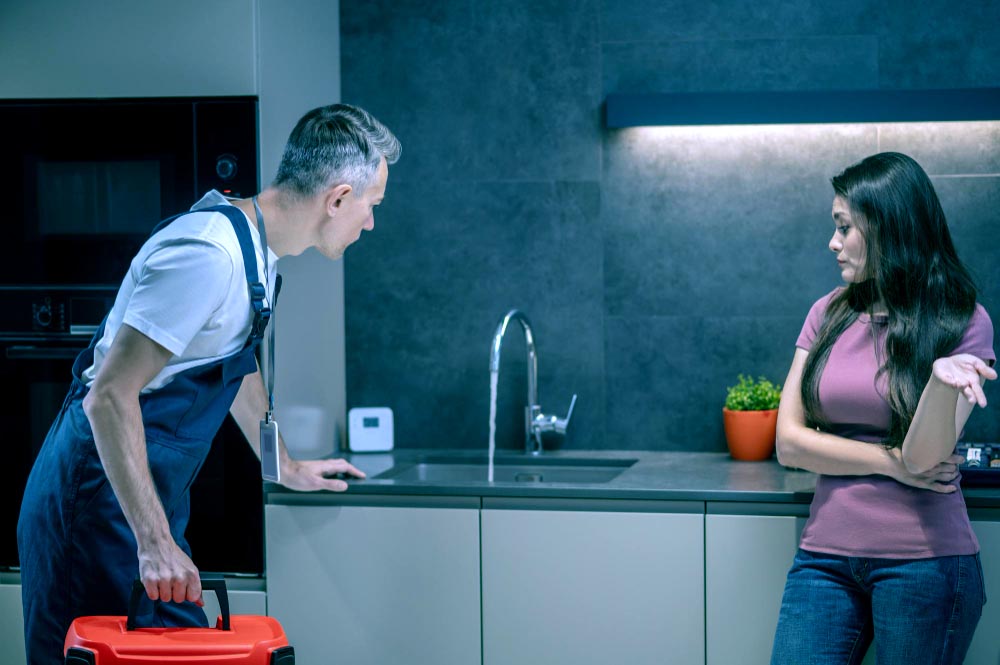What to Look for When Buying a Water Filter System
Introduction
If you’re concerned about the quality of your tap water, investing in a water filter system can provide you and your family with safe, clean water. With so many options available on the market, it can be challenging to decide which one best suits your needs. In this article, we’ll guide you through the process of choosing the perfect water filter system, considering factors such as types of systems, contaminant removal, flow rate, and more. Let’s dive in!
Types of Water Filter Systems
There are several types of water filter systems, each with its pros and cons. It’s essential to understand the differences to determine the best fit for your home.
Pitcher Filters
These are the most basic and affordable option. They consist of a pitcher with a built-in filter that removes contaminants as you pour water into it. While they’re a great starting point, they might not provide the highest level of filtration.
Faucet Filters
Faucet filters attach directly to your tap, filtering water on demand. They’re more effective than pitcher filters and are still relatively affordable. However, they might not fit all faucet types and can slow down the water flow.
Countertop Filters
These filters sit on your countertop and connect to your faucet, offering a higher level of filtration than faucet filters. They’re easy to install but may take up valuable countertop space.
Under-sink Filters
Installed under your sink, these systems provide excellent filtration and have a higher capacity than countertop filters. They don’t take up countertop space but can be more challenging to install and may require professional assistance.
Whole-house Filters
These systems filter all the water entering your home, ensuring clean water for drinking, cooking, and bathing. They’re the most comprehensive solution but can be costly and require professional installation.
Choosing the Right Filter for Your Contaminants
Different water sources can contain various contaminants. It’s essential to determine which contaminants you need to remove before selecting a filter system. Some common contaminants include:
- Chlorine: Often added to water supplies to kill bacteria, chlorine can leave an unpleasant taste and odor.
- Lead: Found in older plumbing systems, lead can cause severe health issues, especially for young children and pregnant women.
- Bacteria and viruses: Microorganisms can enter water supplies through sewage leaks, septic systems, or animal waste.
- Pesticides and herbicides: Agricultural runoff can introduce these chemicals into water sources.
- Heavy metals: Industrial processes can release heavy metals like mercury, arsenic, and cadmium into water supplies.
Once you’ve identified the contaminants in your water, choose a filter designed to remove them effectively. Filters may use various technologies, such as activated carbon, reverse osmosis, or ultraviolet (UV) light, to target specific contaminants.
Considering Filter Performance and Efficiency
Filter performance refers to how effectively a filter removes contaminants from water. This can be measured in terms of reduction percentages or removal rates. Look for filters with high performance ratings, as these will provide the best contaminant removal.
Efficiency is another important factor. Some filters, like reverse osmosis systems, can waste a significant amount of water during the filtration process. If water conservation is a priority for you, consider filters with low wastewater production, such as carbon-based systems.
Understanding Filter Size and Space Requirements
When selecting a water filter system, it’s essential to consider the available space in your home. Pitcher and faucet filters take up minimal space, making them suitable for small kitchens or apartments. Countertop filters require more room but can still be a good option for those with limited space.
Under-sink and whole-house systemsWater Filtration need more space for installation and may require additional plumbing work. Make sure you have enough room under your sink or in your basement to accommodate these systems before purchasing.
Evaluating Filter Convenience and Ease of Use
Some water filter systems are more user-friendly than others. Pitcher filters, for example, require minimal effort � simply fill the pitcher and let the filter do its job. Faucet filters are also easy to use, as they provide filtered water on demand.
Countertop and under-sink filters offer more advanced filtration but may require more frequent filter changes and maintenance. Whole-house systems, while providing the most comprehensive filtration, can be complex and require professional installation and maintenance.
Weighing the Environmental Impact of Your Water Filter System
It’s important to consider the environmental impact of your water filter system. While using a filter can help reduce plastic waste from bottled water, some systems have a higher environmental footprint than others.
For example, reverse osmosis filters can produce a significant amount of wastewater, while carbon-based systems do not. Additionally, consider the materials used in the filter cartridges and their disposal. Look for filters with recyclable components or systems that offer a take-back program for used filters.
By taking these factors into account, you can make an informed decision when purchasing a water filter system, ensuring that you choose a solution that meets your needs and protects the environment.
Filter Certifications
Look for filters certified by organizations like NSF International or the Water Quality Association. These certifications indicate that the filter meets specific standards for contaminant removal.
Flow Rate and Capacity
Flow rate refers to the amount of filtered water produced per minute. A higher flow rate is ideal for households with high water consumption. Also, consider the filter’s capacity, which indicates how much water it can filter before requiring a replacement.
Filter Lifespan and Replacement Costs
Different filters have varying lifespans, ranging from a few months to several years. Make sure you factor in the replacement costs when
Ease of installation and maintenance should also be a priority. Some systems, like pitcher filters and faucet filters, are straightforward to install and maintain. Others, like under-sink or whole-house filters, may require professional installation and regular maintenance checks.
Budget and Pricing
Water filter systems come at various price points, from affordable pitchers to expensive whole-house systems. Determine your budget and weigh the benefits of each option against its cost. Remember, it’s not just about the initial investment � consider ongoing costs like filter replacements and maintenance as well.
Manufacturer Reputation and Warranty
Lastly, consider the reputation of the manufacturer and the warranty offered. A reputable company with good customer reviews is more likely to produce a reliable product. A solid warranty is also essential, as it provides peace of mind and protection for your investment.
Conclusion
When buying a water filter system, there are several factors to consider, including the type of system, contaminant removal, flow rate, and more. By taking the time to understand your needs and researching the available options, you can make an informed decision that ensures safe, clean water for you and your family. Now that you’re equipped with the knowledge to make an informed choice, happy filtering!
FAQs
1. How do I know if I need a water filter system?
If you’re concerned about the quality of your tap water, it’s a good idea to get it tested. Water testing kits are available online or at home improvement stores. If your water contains contaminants, a water filter system can help improve its quality.
2. Can I install a water filter system myself?
Some systems, like pitcher filters, faucet filters, and countertop filters, are easy to install yourself. However, under-sink and whole-house systems may require professional installation due to their complexity.
3. How often do I need to replace the filter?
Filter replacement frequency varies depending on the type of system and its usage. Always follow the manufacturer’s recommendations for filter replacement to maintain optimal performance.
4. Do water filter systems waste water?
Some systems, like reverse osmosis filters, produce wastewater during the filtration process. However, many other types, such as pitcher filters, faucet filters, and carbon-based systems, do not produce wastewater.
5. Are water filter systems environmentally friendly?
Using a water filter system can be more environmentally friendly than purchasing bottled water, as it reduces plastic waste. However, consider the environmental impact of filter production and disposal when choosing a system.
Sure, let’s dive deeper into some of the factors that you should consider when purchasing a water filter system.


